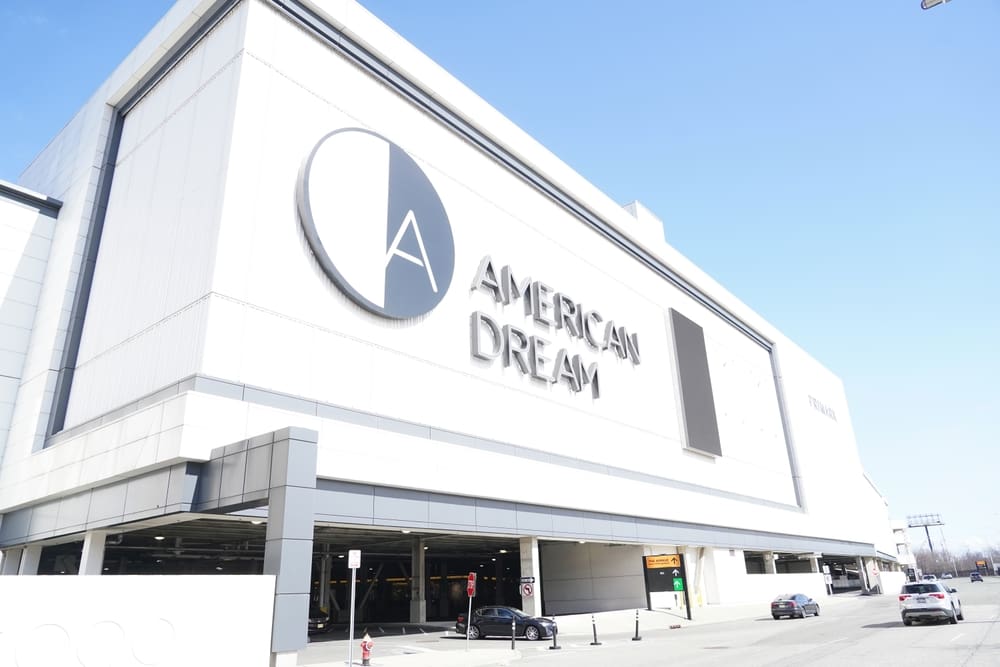The American Dream Mall faces a potential financial bottleneck. A $9.3 million bond payment looms, forcing the mall to dip into reserves. The financial future looks uncertain for the highly popular NJ destination, but that remains to be seen.
The megamall in East Rutherford missed a key bond payment earlier this year. U.S. Bank, the bond trustee, informed bondholders that funds could not cover the semiannual interest due in February.
The payment was tied to $287 million of the $1.1 billion in municipal bonds used for the mall’s construction. These bonds rely on state sales tax revenue generated by the 3-million-square-foot complex, which includes an indoor water park, amusement park, and ski slope. The New Jersey Economic Development Authority backed them with grants, but the money wasn’t there.
This shortfall raises fresh concerns about the mall’s financial stability.
Mega-malls across the country share this struggle. It’s possible that the old retail model no longer works. Consumer habits have shifted, and while entertainment and dining help, they are not enough. Large-scale malls must adapt or die.
Propertize Ventures commented on the situation, noting there may be an opportunity in crisis. The firm specializes in public-private partnerships and mixed-use redevelopment. Instead of abandoning failing malls, they propose transformation—turning them into multi-functional urban hubs. Housing is a natural fit, offering municipalities a solution to housing shortages while keeping tax revenue flowing.
“Retail spaces must evolve beyond shopping destinations. They need to be places where people live and work,” says Steven Mann, General Partner at Propertize Ventures. “Creative financing and mixed-use planning are key to long-term sustainability.”
This shift is already happening. Projects like Hudson Yards in New York and The Grove in Los Angeles blend residential, hospitality, and entertainment within retail districts. American Dream could follow suit, adding luxury residences, short-term rentals, or extended-stay hotels to increase revenue and foot traffic.
Financing is another challenge. Traditional bond refinancing won’t cut it. William DiRe, Partner at Propertize Ventures, believes new financial models are essential. “Institutional capital, tax-increment financing, and structured joint ventures can reshape these properties for the future.”
American Dream’s possible crisis suggests something larger: Mega-malls must evolve or disappear. Those who see this as an inflection point—not a failure—will define the next era of large-scale retail. Propertize Ventures aims to lead this transformation, turning distressed malls into thriving urban centers.
The New Jersey Digest is a new jersey magazine that has chronicled daily life in the Garden State for over 10 years.
- Staffhttps://thedigestonline.com/author/thedigeststaff/
- Staffhttps://thedigestonline.com/author/thedigeststaff/
- Staffhttps://thedigestonline.com/author/thedigeststaff/
- Staffhttps://thedigestonline.com/author/thedigeststaff/


